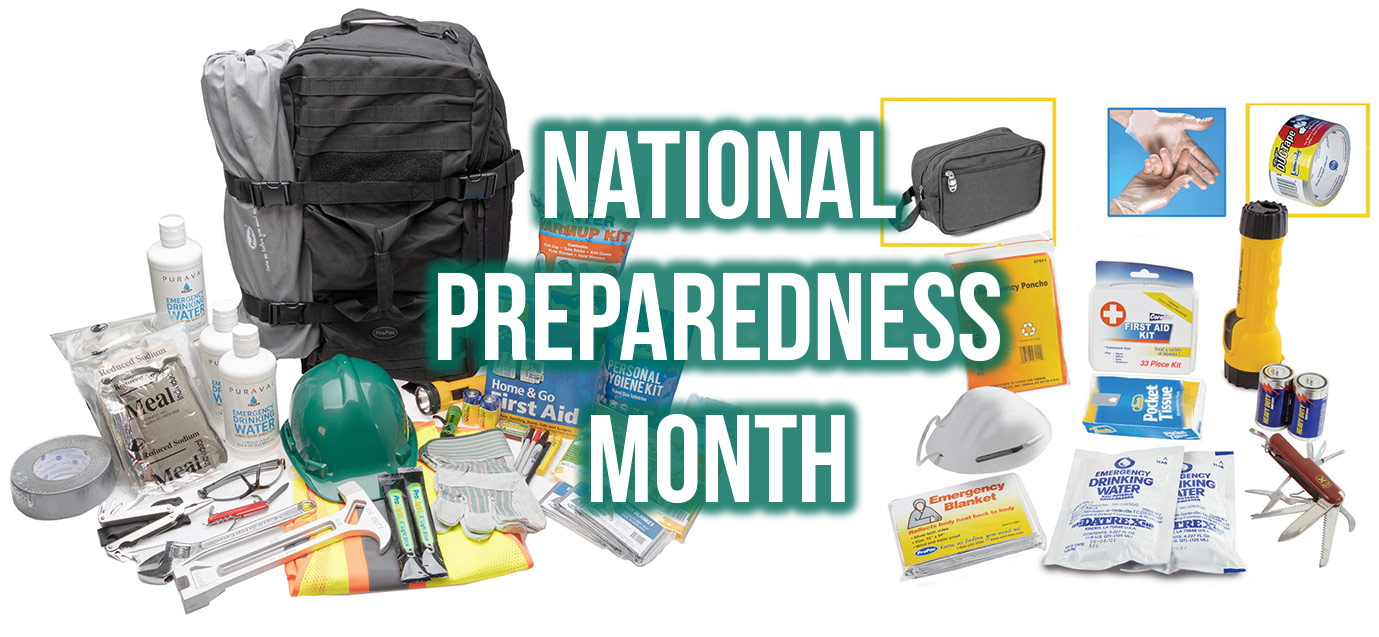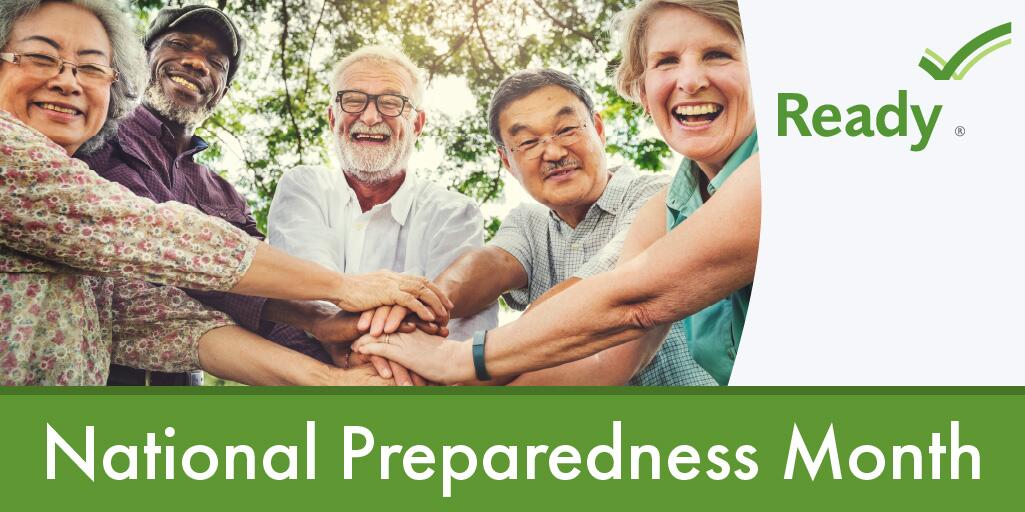
National Preparedness Month
Wednesday September 6, 2023
National Preparedness Month
In times of crisis, being prepared can make all the difference between chaos and stability. National Preparedness Month is observed during September to serve as a crucial reminder of the importance of emergency preparedness for individuals, families, and communities.
To shed light on the significance of National Preparedness Month, we describe the key aspects of emergency preparation and the essential supplies needed to ensure our safety and well-being during times of disaster.
This year's preparedness theme is Take Control in 1, 2, 3. Its main focus is to prepare groups of older adults, that are typically not included in general preparation plans. Older adult communities need different types of emergency planning, therefore extra and unique preparation plans are necessary.
National Preparedness Month is a nationwide campaign sponsored by Ready.gov in collaboration with various other government agencies and organizations. The objective is to encourage all citizens to take proactive steps in preparing for emergencies. The campaign serves to educate the public about the importance of having an emergency plan, staying informed, and having essential supplies readily available.

Key Aspects of Emergency Preparation:
1. Emergency Plan:
The foundation of emergency preparedness is having a well-thought-out emergency plan. This plan should include important contact information, meeting points, and evacuation routes for family members. Each household member should be aware of their roles and responsibilities during an emergency. If you live with an older individual that may need extra assistance moving, keep this in mind when making a plan. Other precautionary steps include any necessary medication or devices they may need, like oxygen tanks or wheelchairs.
2. Stay Informed:
Being informed is crucial during times of crisis. Stay updated with news and weather reports through reliable sources. Local emergency management offices often provide information about potential hazards and evacuation procedures. Social media can be a useful tool if you have access, power, and/or service. Just remember to check timestamps to ensure you are seeing the most up-to-date information.
3. Know Your Hazards:
Understand the potential hazards that your region may face, such as earthquakes, hurricanes, wildfires, floods, or severe storms. Tailor your preparedness efforts to address these specific risks. With most natural disasters, floods are a given, so prepare for those accordingly with flood supplies like clean-up kits and sandbags.
4. Build a Kit:
Having an emergency supply kit is essential for surviving the first hours or days following a disaster. This kit should include enough provisions to sustain your family for at least 72 hours. Here are a few premade by ProPac. If you would like to make your own, here are some key items to include:
Water: For drinking and sanitation, store at least one gallon per person for each potential day.
Non-perishable food: Canned goods, energy bars, and dried fruits are good choices.
Medications and first aid supplies: Keep first aid kits nearby that include basic medical supplies and any necessary medications you and your family use.
Flashlights and batteries: Make sure you have a reliable source of light.
Multifunction knife: Useful for various tasks.
Personal hygiene items: Toothbrushes, toothpaste, soap, and hand sanitizer.
Copies of important documents: Identification, insurance papers, and medical records.
Cash: ATMs may not be operational during emergencies.
Blankets and extra clothing: Prepare for varying weather conditions.
Cell phone with a portable charger: Communication is vital during emergencies.
5. Protect Your Home:
Secure your home against potential hazards. Smoke detectors, carbon monoxide detectors, and fire extinguishers are important items to keep in your domicile. Consider reinforcing doors and windows in regions prone to hurricanes or strong winds. If appropriate for your area, consider earthquake-proofing heavy furniture and appliances.
National Preparedness Month serves as an important annual reminder for individuals, families, and communities to take emergency preparation seriously.
Being prepared can reduce the impact of disasters, save lives, and enhance our ability to recover quickly. By creating a comprehensive emergency plan, staying informed, and assembling essential supplies, we can ensure the safety and well-being of ourselves and our loved ones during challenging times. Let us all commit to making emergency preparedness a priority, not just during National Preparedness Month but throughout the year.